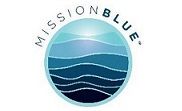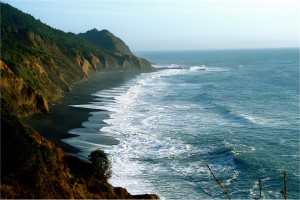Stewards of the Wild Sea – Part III of the MLPA Film Series
Educating the Public about the Marine Life Protection Act – California 2013
Stewards of the Wild Sea (2013)is the third film in a series made by Coyote Films and The Baum Foundation that illuminates the pioneering conservation efforts of the Marine Life Protection Act (MLPA) Initiative in California that created the first statewide network of marine protected areas in the United States. Directed by Bill Bayne, Produced by Hawk Rosales, April Bucksbaum and The Baum Foundation, this film was featured at the 10th World Wilderness Congress in Salamanca, Spain (2013), and nominated as a finalist for the best film in the Conservation Innovation and Solutions category by the 2014 Blue Ocean Film Festival.
Stewards of the Wild Sea shares lessons learned and what went right for indigenous people, specifically for north coast tribes and ocean wilderness. Stewards of the Wild Sea highlights the pivotal role that north coast tribes played in protecting their ancestral fishing and gathering rights while participating in a unique Tribal-State partnership that brought about a dual victory for both the marine environment and tribal nations.
The success of the Marine Life Protection Act (MLPA) Initiative was featured at the 10th World Wilderness Congress (Wild10) in Salamanca, Spain, October 2013 where a California Ocean Wilderness Delegation was recognized at the global forum. Key legislators, tribal leaders and other stakeholders were invited to discuss their experience in the planning and implementation of California’s Marine Life Protection Act (MLPA) Initiative, the role of Native American leadership in the outcome of this process and reflections on important lessons learned in Northern California through the involvement of tribal governments and the public in planning and conservation.
California’s historic designation of a state marine regulation protecting the subsistence rights of north coast tribes while implementing a statewide network of marine protected areas shows how “conservation goals can be achieved” with strong leadership, vision, collaboration, and perseverance after more than a decade-long effort that included the State’s substantial investment in an inclusive public-private partnership process based on science and stakeholder input.
vvlx,
hentai,
xporn,
xnxx,
sex việt,
Family Practice Doctors Near Me,
Ratify Treaties,
Best Hookup Apps,
Brunch On A Wednesday,
Comfortzone,
Plaza Premium Lounge Orlando Reviews,
Catering 77002,
Cauliflower And Coconut Curry,
Usa Rail Pass,
Active Duty Service Member,
Patch American Flag,
Farfetch Coupon Code,
Connect Google Mini,
Nike Mens High Top,
Bronny James Usc Basketball,
Anal Sex Prep,
Aesports,
Check Balance On Debit Card,
Add People Trustpilot,
Skype Ids,
← Presidential Climate Action Project





